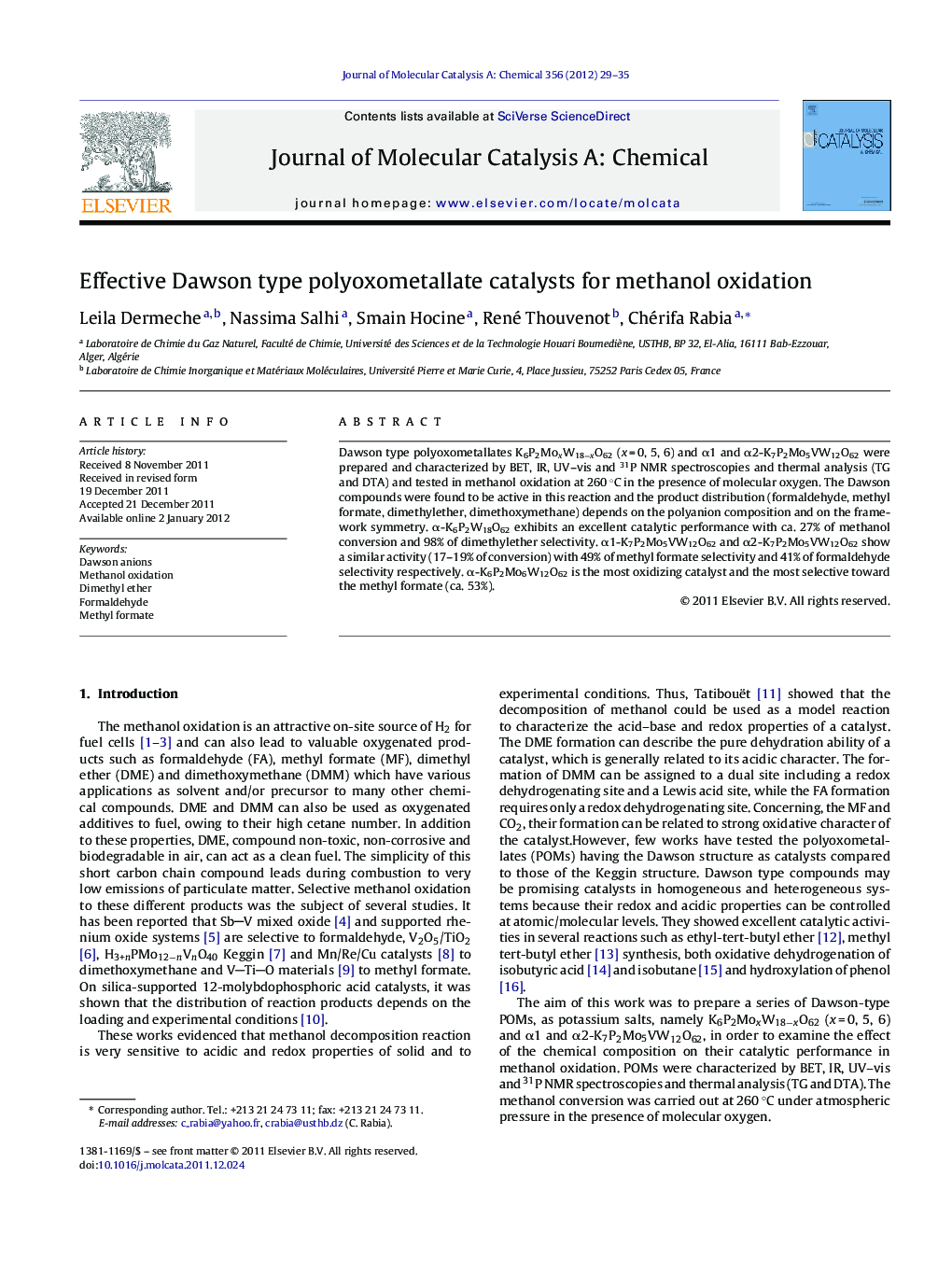| Article ID | Journal | Published Year | Pages | File Type |
|---|---|---|---|---|
| 66147 | Journal of Molecular Catalysis A: Chemical | 2012 | 7 Pages |
Dawson type polyoxometallates K6P2MoxW18−xO62 (x = 0, 5, 6) and α1 and α2-K7P2Mo5VW12O62 were prepared and characterized by BET, IR, UV–vis and 31P NMR spectroscopies and thermal analysis (TG and DTA) and tested in methanol oxidation at 260 °C in the presence of molecular oxygen. The Dawson compounds were found to be active in this reaction and the product distribution (formaldehyde, methyl formate, dimethylether, dimethoxymethane) depends on the polyanion composition and on the framework symmetry. α-K6P2W18O62 exhibits an excellent catalytic performance with ca. 27% of methanol conversion and 98% of dimethylether selectivity. α1-K7P2Mo5VW12O62 and α2-K7P2Mo5VW12O62 show a similar activity (17–19% of conversion) with 49% of methyl formate selectivity and 41% of formaldehyde selectivity respectively. α-K6P2Mo6W12O62 is the most oxidizing catalyst and the most selective toward the methyl formate (ca. 53%).
Graphical abstract. Dawson polyanion [P2W18O62]6−.Figure optionsDownload full-size imageDownload high-quality image (109 K)Download as PowerPoint slideHighlights► K6P2W18−xMoxO62 (x = 0, 5, 6) and α1 and α2-K7P2W12Mo5VO62, Dawson polyoxometalates. ► Catalysts for methanol oxidation. ► The major products are formaldehyde, methyl formate, dimethylether and dimethoxymethane. ► The reaction products depend on the choice of elements constituting the heteropolyanion. ► Dawson heteropolyanions are as good design to guide the methanol oxidation.
